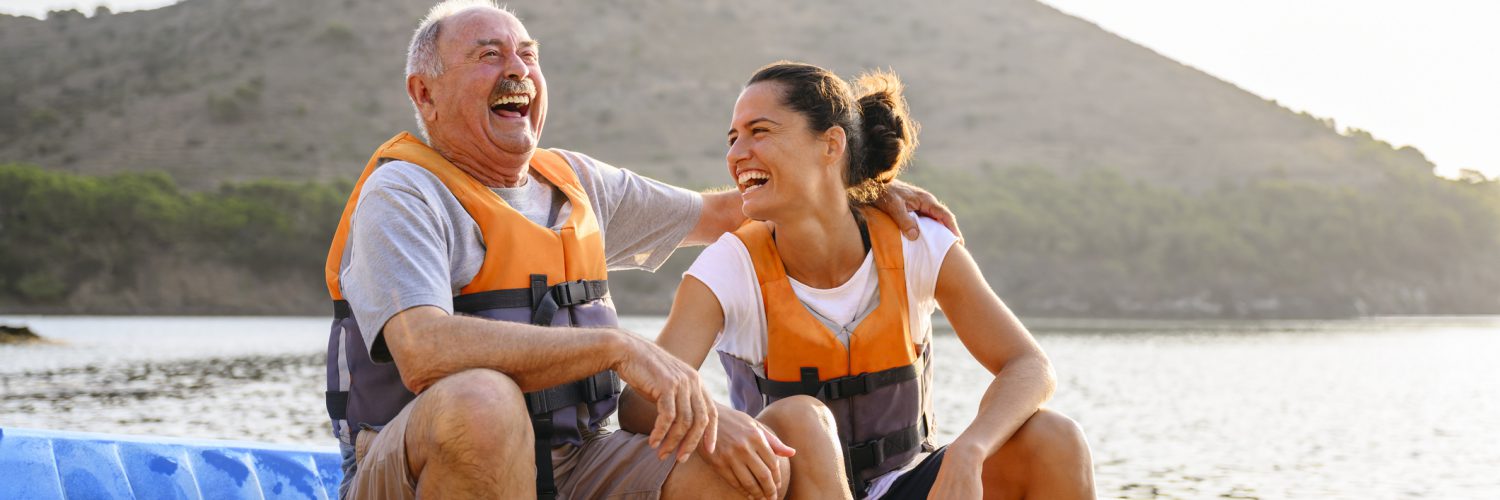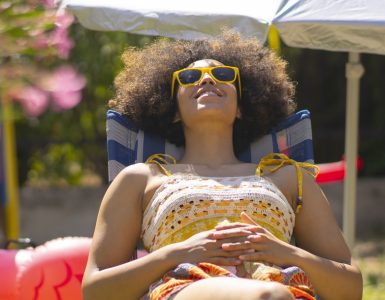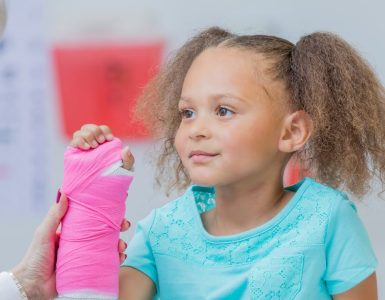Taking precautions against the hazards of summer is especially important this season if you’re in a region experiencing a heat wave. To keep safe, hang out in places with air conditioning, avoid strenuous activities, wear light clothing, and drink water frequently. Never leave people or pets in a vehicle unattended.
Wherever you are, here are additional summer safety tips to follow:
Use sunscreen with an SPF of 30+ that blocks both UVA and UVB rays, wear sunglasses with UV protection, and wear a wide-brimmed hat. Try to stay in the shade from 10 AM to 2 PM, when the burning UV rays are most intense.
Apply tick and other bug repellents and wear long pants in grassy or woodsy areas.
Avoid summer picnic food poisoning. Make sure that foods with mayo, dairy, eggs or meat are kept refrigerated and thoroughly cooked.
Bring a day-pack with essentials. Consider including a mini first aid kit, needed medications, a mask, hand sanitizer, your photo ID, health insurance card and, if you have it, a copy of your vaccination card.
Check ahead for any COVID-19 safety precautions or restrictions for your destination. Visit: https://wwwnc.cdc.gov/travel
Wear appropriate protective/safety gear. Use bike helmets and life jackets. Wear closed-toe shoes and sunglasses when mowing the lawn. Additionally, if walking or biking after dark, wear reflective strips on your clothing and bike and use a small headlamp.
Safeguard your road trips. Pack a flashlight, flares, batteries, jumper cables, reflective devices, a spare tire and tools to change it, a jug of water and a blanket; also include the phone number for roadside assistance. Plus, bring a detailed map as phone reception may not be reliable in all areas.
Be sensible and follow the rules! Don’t drink alcohol if you’re boating or engaging in other water sports, for example. Follow warnings for swimming, staying on trails, building safe campfires, and using fireworks. On roadsides, always walk facing traffic, but bike in the same direction as
traffic. Cross streets only at crosswalks. Let people know your intended routes/destinations and take a buddy to hike or swim with you, especially in unfamiliar areas.
One final safety reminder:
Go to the ER or call 911 for any severe or life-threatening symptoms or conditions including signs of heat exhaustion or heat stroke. But even moderate pain, bleeding, difficulty breathing, swelling, nausea, burning, dizziness, and other symptoms should prompt you to call your doctor or visit urgent care.
For more heat wave safety tips, click here.



